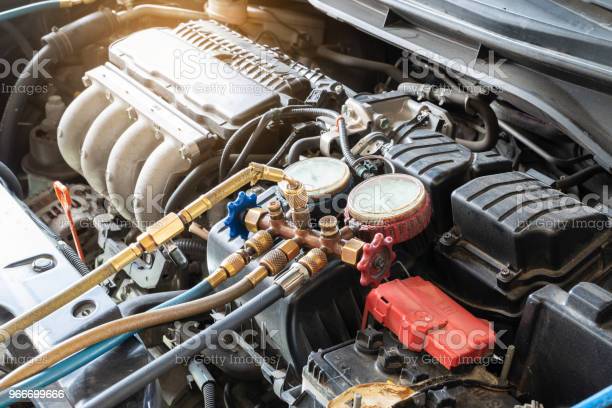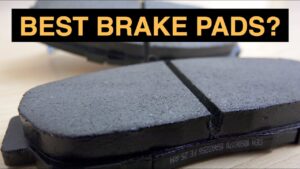Have you ever experienced problems related to car revs up and down? We know, no one wants such type of experience in life but if you are ever stuck in a situation like this, then the article would surely help you.
 Here, the article will cover all the essential points regarding the topic along with some frequently asked questions by the readers. So, let’s begin with the topic.
Here, the article will cover all the essential points regarding the topic along with some frequently asked questions by the readers. So, let’s begin with the topic.
Table of Contents
What Does It Mean When Your Car Revs Up By Itself?
It is often observed and experience sounds like you may have a dirty or failing air control valve. These control valves in the vehicle’s computer are adjusted under idle speed based upon other measurements like the engine temperature, intake air temperature, and electrical system load or voltage.
Thus, it’s better to check and analyze such conditions soon either by professionals or mechanics nearby. So that the issue won’t last long and creates severe problems. Also, proper and timely servicing can avoid or prevent all these unexpected issues in the vehicles.
What Are The Causes Of Car Revs Up And Down?
The causation of car revs up and down may occur due to a variety of reasons and describes the number of times the crankshaft rotates around the axis every minute. Whenever you observe combustion in the engine, the pistons move up and down. Thus, the energy of these pistons moving is transferred into the crankshaft.
Some of the common reasons for the erratic engine in the vehicle are discussed below. Let’s have a look at each of the causes one by one so that dealing with the problem becomes much easy and smooth.
1. Vacuum leaks

In respect to automotive terms, the vacuum leak indicates that a certain amount of air has bypassed the usual engine intake tract. Thus, whenever such conditions arise, some air enters the intake manifold without passing through the throttle body.
The ECU on the other hand injects the necessary amount of fuel needed by the vehicle based on the measured airflow. Multiple symptoms are determining the vacuum leaks, however, the common signs among them are sporadic idling, engine hesitation, vacuum sounds, and four check engine warning.
Driving with vacuum leaks is extremely unsafe both for you as well as for the vehicle itself. It may lead to complete power loss to your engine. Hence, visit the mechanic as soon as possible.
2. EGR System Malfunctioning In Vehicle
 There are a variety of reasons responsible for the initiation of such issues in the vehicles. A faulty or failing EGR valve can cause problems with the flow of the EGR system leading to a performance issue in the car. As a result, it includes certain variations such as reduction in power, reduced acceleration, and decreased fuel efficiency.
There are a variety of reasons responsible for the initiation of such issues in the vehicles. A faulty or failing EGR valve can cause problems with the flow of the EGR system leading to a performance issue in the car. As a result, it includes certain variations such as reduction in power, reduced acceleration, and decreased fuel efficiency.
We can easily analyze the bad EGR in the vehicles due to the emergence of multiple signs. You can observe it by recirculating some of the emissions back into the combustion chambers rather than sending them away. Some of the most common symptoms are, rough idle, poor performance, and decreased mileage,
However, you can drive your vehicle with a bad EGR valve but the vehicle will experience a rough run, shake at idle, and check engine light will emerge with time.
3. Sensor Failure In Car
The presence of bad sensors in vehicles misguides the driver which also creates a lot of problems. It could run irregularly or sound rough when it idles. A faulty sensor can impact or affect your engine’s timing, combustion intervals, and other essential functions.
There are certain causes for which the components are not working properly and need repair or replacement. For example, there are conditions when the coolant sensor may damage due to engine overheat. However, you can drive your vehicle with broken sensors but needs more alertness and consciousness.
4. Transmission Fluid Problems

In some automatic vehicles, the transmission fluid serves to carry power from the engine to the transmission. It also lubricates the essential parts of the transmission system in the vehicle. Whenever your transmission fluid begins to leak, your car may experience or will start to revs to higher levels due to the torque converter.
As a result of all this, delayed or erratic gear shifts are observed in the vehicles.
5. Worn Out Or Slipping Clutch

It is most often observed in manual vehicles. Here, the clutch interacts with your transmission system which allows you to change the gears. A slipping clutch may result in the engine revs higher as the transmission struggle to work properly.
A slipping clutch on other hand also causes your vehicle to lose power and struggle to stay up to the required speed.
Frequently Asked Questions-
So,here are some of the frequently asked questions about why is my idle going Jo and down,what are the signs of bad idle air control valve etc?-
Why Is My Idle Going Up And Down?
As discussed above, there are some potential causes responsible for such cases like vacuum leaks, EGR system malfunctioning, oxygen sensors, dirty fuel injectors, faulty fuel pump, spark plug failure, and much more. Also, there is a faulty or malfunctioning throttle sensor which plays an important role in the generation of these issues.
What Are The Signs Of Bad Idle Air Control Valve?
Generally, the bad or failing idle control valve will produce a few signs and symptoms that can help the driver of a potential issue. Some of them are irregular idle speed which is one of the common symptoms associated with a problematic idle air control valve. There is also the emergence of the check engine light and engine stalling.
Why Does My Car Rev When I Brake?
If the oxygen sensor is bad, it may cause the engine to rev as you brake. Besides, it can also cause poor gas mileage, emission test failure, rough engine idle, and check engine light come on. The revving when stopping your vehicle occurs when the oxygen sensor wrongly detects that your air-fuel mixture is too much fuel.
Why Does My Car Rev High On Its Own?
Another issue that could be causing your car to rev high on its own is a dirty or sticking throttle body valve. A car’s throttle body valve is designed to open and close based on how much throttle is applied to allow more or less air into the engine.
So, while dealing with such issues you can drive your vehicle to a certain extent but it is better to visit the mechanic as soon as possible.
Conclusion
We hope the information mentioned above help and guides all the readers to deal with the issues and the related problems. However, we also expect that by the end of the context you know all the essential things about the car revs up and down.
If your doubts or queries regarding the matter persist, please comment below in the comment section. And we will surely put an effort to answer all your questions as quickly as possible.



